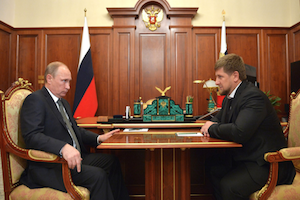Is there an Agreement on Caspian Sea Delimitation?
By Stephen Blank
January 25, 2018, the CACI Analyst
On December 5, 2017, Russian Foreign Minister Sergei Lavrov announced that all the key issues regarding the delimitation of the Caspian Sea had been resolved and that a treaty was being prepared for heads of state to sign in 2018 in Astana. Yet less optimistic statements from the other parties, particularly Iran, suggest that Lavrov’s assessment was premature. If Russia and Iran can nevertheless reconcile their differences on the demarcation of the Caspian, this would have important strategic consequences not only for the littoral states, but also for the Caucasus, Central Asia and the Middle East.
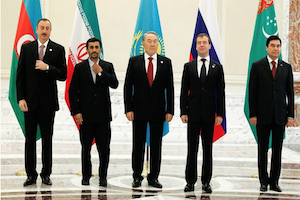
Russian Loan Allows Armenia to Upgrade Military Capabilities
By Eduard Abrahamyan
January 8, 2018, the CACI Analyst
On December 6, 2017, the Armenian Parliament unanimously ratified the Armenian-Russian US$ 100 million “state export loan.” The accord, signed on October 24, allows Yerevan to borrow funds for purchasing a wide range of sophisticated arms manufactured by Russia in order to implement the “Common Defense Sector Development Plan.” This is Moscow’s second programmed military loan to Armenia, following the US$ 200 million loan agreed in 2015 which is now in the final stage of realization. The pending loan is intended to allow Yerevan to uphold its consistent procurement of military hardware since 2011 in an effort to negate Azerbaijan’s military-technical superiority.
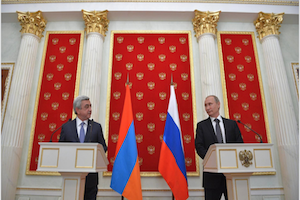
Sacralizing Russian Imperial Borders: Undertones for Post-Soviet Nations
By Rahim Rahimov
January 4, 2018, the CACI Analyst
On the occasion of the 100th anniversary of the 1917 Bolshevik Revolution, a series of new documentaries and films such as “The Demon of the Revolution,” “Trotsky,” “The Great Russian Revolution” and “The Genuine History of the Russian Revolution” were broadcast on major Russian TV channels. Clearly, these films were designed to disrupt popular Russian perceptions of the revolution and instead foster a hostile narrative of the events. Alongside its major domestic motivations, this narrative also has significant implications for post-Soviet nations.
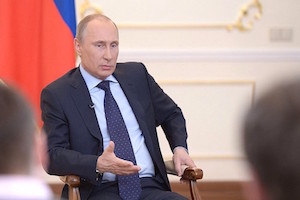
Armenia Signs Framework Agreement with EU, Attracts Russian Ire
By Armen Grigoryan
December 21, 2017, the CACI Analyst
The new framework agreement between Armenia and the European Union creates some opportunities to implement governance reforms and to amend the legal framework, which would improve the investment climate. The new agreement excludes free trade provisions which would contradict Armenia’s commitment to the Russia-led Eurasian Economic Union (EEU). Meanwhile, EEU membership continues to undermine the welfare of Armenian citizens, despite previous official assurances, while the lack of political will deriving from both internal and external factors may potentially limit the government’s readiness to implement reforms.
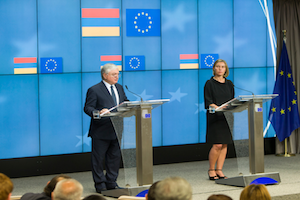
Anti-Kadyrov Chechens are Targeted in Ukraine
By Huseyn Aliyev
December 11, 2017, the CACI Analyst
The recent assassination of anti-Moscow Chechen activist Amina Okueva in Kyiv is yet another link in the chain of targeted killings of Chechen President Ramzan Kadyrov’s opponents across the former Soviet Union and beyond. A former member of “Djokhar Dudayev” battalion, which fought against pro-Russian separatists in Eastern Ukraine, Okueva has been a target of pro-Kadyrov Chechens since her engagement in armed conflict in Ukraine. The event demonstrates Kadyrov’s capacity to persistently hunt down his enemies well outside the borders of Russian Federation. The inability and unwillingness of Ukrainian security services to protect Chechen volunteers, who participated in the campaign against Russian aggression in Donbas, leaves them vulnerable to persecution by Kadyrov’s associates.
